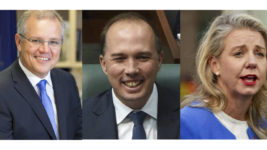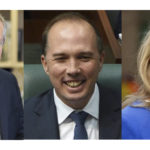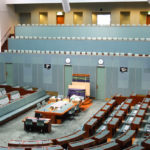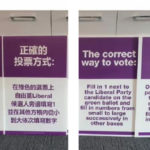The ‘Sports Rorts’ Scandal: Buying Votes in Targeted Electorates

Hot on the heels of revelations about the government’s potential misuse of funds from community sports grant programmes in the lead up to last year’s election, new information reveals the government spent more than $600 million across six programmes, five of which gave ministers discretion over where the money should go.
In-depth analysis published today shows the full extent of Coalition’s spending across the six programs, which further support assertions that the party used the money as a ‘slush fund’ to enhance its chances of re-election
Lack of transparency
The analysis also shows that in many cases, the criteria for funding was broad and generalised, with few or no guidelines, despite the fact that these grants were set up with the intention to assist local communities to build much-needed infrastructure and facilities for community engagement, and in doing so, boost employment, and provide economic stimulus.
There is serious concern over the fact that five of the programmes – the Building Better Regions fund, Female Facilities and Water Safety Stream programs, Community Sport Infrastructure program, Safer Communities fund and Community Development grants – gave ministers the discretion to make decisions about allocating funds.
The sixth, the Stronger Communities program had decisions about successful grant recipients made by a ‘programme delegate’ who acted on advice from committees including the relevant local MP.
With criticisms being levelled at the government about the fairness of the allocation of local community sports grants, this week the independence and integrity of decisions made about the Building Better Regions Fund are also being questioned.
Conflict of interest?
Data shows the government awarded about $200 million in grants in the lead-up to the election, (between December 2018 and May 2019), with 156 of the 166 grants announced two months prior to the election being awarded to seats the Coalition was targeting.
Calls for a senate inquiry
Shadow infrastructure minister Catherine King has now referred the matter to the auditor general. And in the wake of the recent ‘sports rort’ revelations, Senator Bridget McKenzie resigned from the ministry. It’s also since come to light that Ms McKenzie made a decision to spend ‘leftover’ federal money to fund a $150,000 study into the benefits of shooting, instead of giving it to another potential recipient for the funds, the INAS Global Games for intellectually impaired athletes in Brisbane.
The INAS organisers eventually received funding, through a separate process, but not without significant government lobbying.
The senate has also voted to set up an inquiry into the sports funding programmes, which means these will face more scrutiny in the coming months. It’s likely too that the other programmes will each be audited carefully.
Safer Communities Fund
It shouldn’t be forgotten, either, that last year the government also awarded Scott Morrison’s own Horizon Church in Sydney more than $100,000 of taxpayer dollars through a Department of Home Affairs initiative known as the Safer Communities Fund.
The grants were announced earlier in the year, when the government allocated $55 million to upgrade security at places of worship around Australia, shortly after the New Zealand Mosque shootings in Christchurch, which killed 51 people. And, despite the Horizon Church being wealthy in its own right, (the building itself is estimated to be worth around $13 million), government money will pay for the installation of security cameras and lights, as well as alarm systems and a security guard.
Certainly, such revelations about the flippant use of public funds have made tax payers angry. Many are wondering if this could just be the tip of the iceberg?
Australians have a right to demand full disclosure from this government, despite the fact that it has shown time and again a culture of avoiding important issues, secrecy and a lack of transparency and accountability.
Obviously, it is expected that these grants would be used as they were originally intended, to support our communities, not, as some have already suggested, as ‘a pre-electoral campaign slush fund to win over voters’, and the government must now stand up and face these allegations.
It’s also a particularly hard pill to swallow at a time when so many communities are struggling desperately, facing the sheer enormity of rebuilding their lives after devastating natural disaster, and at a time when there so many other pressuring social issues that this government has failed, so far, to address: high illiteracy rates, particularly in remote areas, children living in poverty, family and domestic violence, increasing levels of homelessness – the list goes on.







